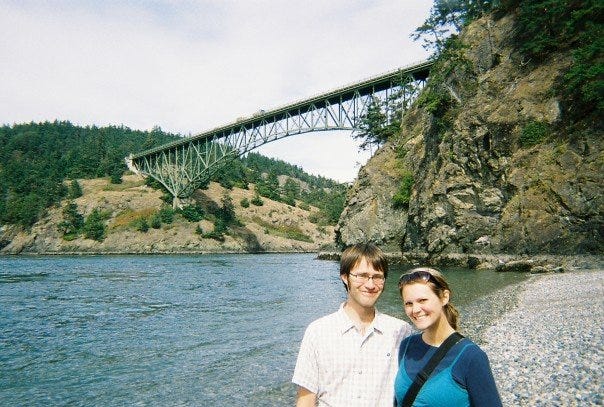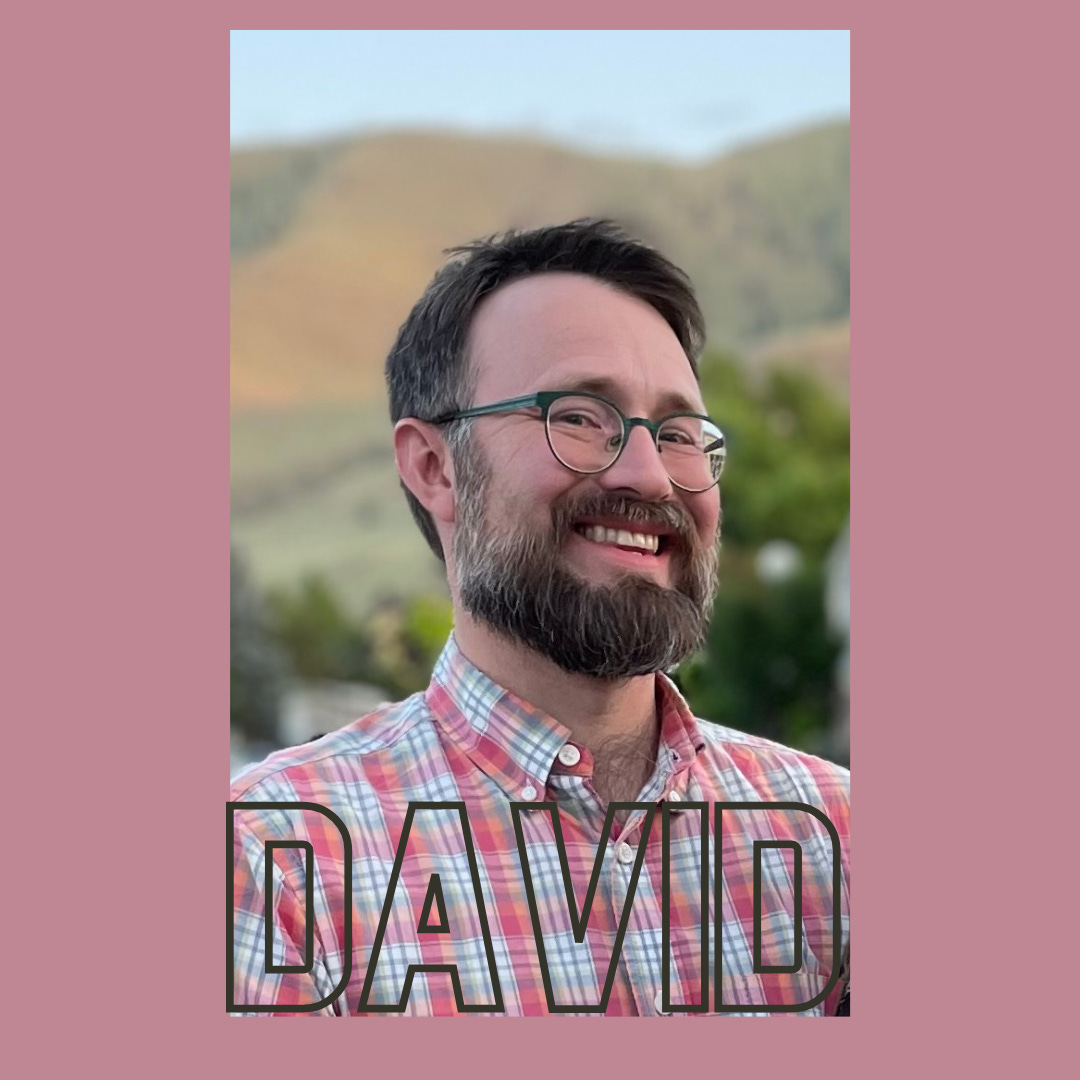David
David Ellsworth-Keller: The Interview
As part of this series, I conduct interviews with fascinating people who have resided all over the country and the globe. These occasional interviews appear as podcast episodes (available through your browser or on various podcast apps) and while the starting place for these interviews are questions about physical “homes”, we get to talk about all sorts of other things that are (or are not) “home” in their lives.
To listen to this interview in a browser or as a podcast, click the audio voiceover (“listen to post/article voiceover”) above. Read this if you need instructions on how to listen to episodes in your podcast app.
If you’re reading this in your inbox, you can find a shareable, web-friendly version at ashleighellskells.substack.com, where all my other essays and podcasts live. You can request to follow me on Facebook here and Instagram here, and I’m happy to hear from you at aellsworthkeller@gmail.com.
I’ve been doing these interviews for three years now, and have made my way through a smattering of friends and family members (it’s slower than I initially thought!), but had not yet interviewed my own husband, David. David has been a faithful subscriber since Day One, and so much more!
Although our paths have been aligned for nearly two decades now, we came from different backgrounds and geographical areas, and it was a matter of being in the same right place and the same right time that brought us together at all. But both of us were reared by loving and supportive parents, and our stories are just two examples of how there is no singular way to grow up and become a decent adult living in our world today.
In this interview, the focus isn’t so much our life together (though that can’t be overlooked), but the twists and turns of David’s own journey as a Keller, before he added Ellsworth to his name. We roam through Colorado, Maine, and Arizona, where David spent his early and young adult years. His family moved several times before he was even in middle school: Durango to Boulder to Portland (Maine) to Flagstaff, Arizona.
With thousands of miles under his belt as a pre-teen, you might think that, as an adult, he would look back on this movement as a detriment to his development or social life. But to him, it was a welcome change; his family’s move back west in the early nineties intersected with a resurgence of the cultural fascination with the idea of the “American West.” (We’re excited to be writing a joint thesis called “How Back to the Future Part Three Defined ‘The West’ for a Generation of Young Cultural Consumers”).
Kidding. Maybe!
Life in Flagstaff was good, from youth to young adulthood to adulthood and all the escapades and professional experience it brought. And when he thought it was time to leave, it was actually a false start! It turns out that when something doesn’t feel right, it’s okay to change your mind. Something better might be waiting for you on the other side.
We leave off in Vermont, where we moved in 2008 right after getting married, and David’s meaningful stint with AmeriCorps* at the Champlain Housing Trust, which was essential to his career path. Part Two (coming soon) will cover more Vermont, Georgia, Washington, and lots of other things that feel like home.

Reflection Questions:
What are some memorable pieces of pop culture that influenced your views when you were younger?
Have you ever had to make a big decision that you questioned? What did you do? Knowing what you know now, would you make the same decision again?
Image: Lake Chelan, 2023.
*Having worked closely with AmeriCorps for over a decade (and obviously being married to someone who served as an AmeriCorps member for two years), I will continue to defend the incredible benefits of the AmeriCorps program, a way for people—mostly young but any age—to serve their country and gain incredible skills, all while making our communities better.
Just a few days after this interview, the current U.S. Administration gutted the AmeriCorps NCCC (National Civilian Conservation Corps) Program, effectively eliminating it. Thousands of young people not only lost their jobs, but shuttering a decades-old program with bipartisan support means that no one will be providing essential services to the organizations with whom they were contracted. Schools, nonprofits, community centers, and faith-based organizations, to name a few, cannot always afford to hire replacements. Things like support for seniors, trail maintenance, and other human services simply disappear.
Young people take these jobs not for the pay, but for essential job skills they learn and because they want to help others. David’s AmeriCorps State salary in 2008 was $13,000 a year; that’s less than $1,000 per month after taxes. An unelected billionaire cutting extremely low-paying government jobs is a bad look, my friend. It was never about “efficiency” or rooting out so-called “fraud.” It’s a distraction and a joke, though it’s not funny at all.
AmeriCorps VISTA, State, and National remain intact, for now. But wiping out government entities engaged in helping others shows where the priorities of our current leaders lie, and it sure doesn’t include helping your neighbor.
That’s my Ted Talk. Long live AmeriCorps!



Very much enjoyed the interview. I’ve always respected and loved both of your minds. Wishing your family the best. This made me miss Flagstaff terribly and the wonderful people I met during that adventure. 💕